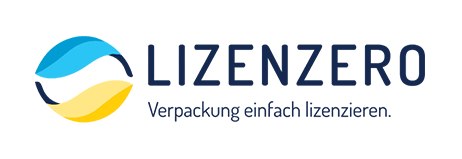What is transport packaging? An explanation of terms, disposal and materials

Transport packaging is used to transport goods between individual trading partners and is generally used in the B2B (business-to-business) sector. They protect products from damage, weather influences and help to ensure that the products can be transported safely. How is packaging that is used for transport classified within the German Packaging Act? What do companies have to consider when taking back transport packaging? We share an overview with you and answer the most important questions.
A wooden pallet full of beverage bottles for the supermarket, the wooden box full of filling material in which heavy metal parts are transported well protected or the 200-litre barrel of motor oil from the oil dealer for the car workshop – transport packaging is packaging that is used to transport goods between different stages of trade and is intended to protect products from damage. They are typically – with some exceptions – not intended to end up with the final consumer. Unlike sales packaging, it is often large, bulky packaging that is used in business between companies. One also speaks of packaging between manufacturers and traders or trader to trader packaging, in which many products are often aggregated. Companies can usually buy transport packaging in small and large quantities from specialised wholesalers.
Content
- Overview: the most important facts about transport packaging
- Transport packaging must be taken back by the distributor
- Dispose of transport packaging through an external service provider
- Disposal of transport packaging vs. licensing obligation
Overview: the most important facts about transport packaging
- Transport packaging differs significantly from sales packaging – it is shipped from trader to trader, instead of being shipped to an end consumer
- Distributors of transport packaging must take back the materials used and dispose of them properly – external companies such as the environmental service provider Interzero can be commissioned to do this.
Transport packaging must be taken back by the distributor
Anyone who puts transport packaging into circulation has a so-called producer responsibility, which is linked to a take-back obligation. One does not speak of licensing transport packaging, but of "discharging obligations". This means that the producer or distributor must ensure that the packaging he sends – pallets, boxes, cartons – is collected from the recipient after use and then sent to recycling.
The German Packaging Act regulates the obligation to take back transport packaging in Section 15 (1). Distributors must take back packaging and dispose of it properly. The obligated companies may use third parties to fulfil these tasks. These are recycling companies and environmental service providers, such as Interzero.
Please note: As part of the first amendment to the German Packaging Act, which came into force on 3 July 2021, distributors of transport packaging must provide evidence of compliance with the take-back and recovery requirements (obligation to provide proof) from 1 January 2022. If the transport packaging ends up with the final consumer, the final distributor of the transport packaging has to inform the final consumer in detail about the return options and their purpose since 3 July 2021 (obligation to inform).
Dispose of transport packaging through an external service provider
Packaging intended for transport from trader to trader is often bulky, heavy and complex in order to protect the transported goods in the best possible way. Companies that only put transport packaging into circulation do not have to license their packaging, however they must register at the Central Agency Packaging Register in LUCID from July 1, 2021 on. This is a new regulation connected to the changes of the German Packaging Act amendment.
According to the German Packaging Act (VerpackG), anyone who puts packaging into circulation as a manufacturer or distributor in order to send their products to another dealer or distributor is affected by the described take-back obligation. However, this obligation can be delegated to a recycling company or environmental service provider such as Interzero.
Interzero offers return and recycling solution for transport packaging. This means, the used transport packaging is usually directly collected from the customer and recycled if possible or - if recycling is not possible - recovered for energy. Transport packaging disposal is offered throughout Germany with the help of over 600 certified disposal partners. In addition, there are already numerous individual solutions for this type of packaging for more than 20 sectors, including the construction, sanitary, heating and furniture industries.
Disposal of transport packaging vs. licensing obligation
The procedure of disposing of transport packaging should not be confused with the recycling of sales packaging. Sales packaging is intended for private end consumers and is used to protect products and to safely hand over the goods to the customer. This includes for example cardboard boxes, shipping materials, but also glass bottles, paper, composite materials or food cans. Retailers and manufacturers of sales packaging must license packaging materials put into circulation for the first time. In addition, they must register with the Central Agency Packaging Register and join a dual system such as Interseroh+.
Unlike packaging used to transport large quantities of goods, sales packaging for end consumers is disposed of in households via the dual systems recycling bins. Companies that do business with other traders and distributors and also supply private end customers – and put packaging materials into circulation for the first time for this purpose – must treat the packaging used in each case according to its corresponding purpose, meaning taking back the transport packaging used and having the end consumer packaging licensed.



